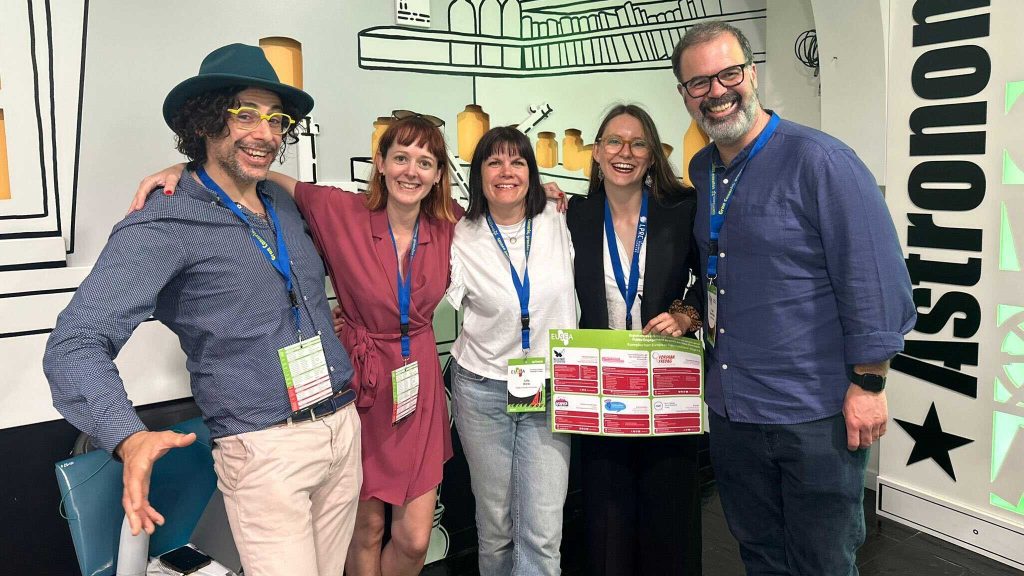Crossing Oceans – Raising Sails was this year’s theme at EUSEA. Read Julia Brink’s reflections after participating in the conference held at Gran Canaria in May 2025.

I had the privilege of attending the EUSEA conference in Gran Canaria both as a representative of Public & Science Sweden and as an organiser of the Parallel Session III.3: ”Reassessing Impact in Large-Scale Science Communication Events – Experiences from Around Europe” together with a number of other European Researchers’ Night colleagues.
The session was definitely one of the highlights of the week. The room brought together people from across Europe who had all wrestled with the same question: how do you really measure the impact of a big science festival or communication event? We explored everything from traditional methods like surveys and interviews to more creative and participatory approaches, including storytelling, arts-based tools, and long-term relationship building.
What stood out to me was how open everyone was about the challenges.
What stood out to me was how open everyone was about the challenges. Lack of time, unclear metrics, small budgets are shared struggles. But there was also a lot of creative thinking and refreshing honesty. Someone talked about capturing “golden moments” little stories or feedback from teachers or kids that show deep, personal impact. That really stuck with me.
It was a powerful reminder that public engagement isn’t just about correcting misinformation or teaching facts – it’s about listening, co-creating, and acknowledging that science exists in a social context.
The conversation made it clear: we need tools that are robust and comparable across countries, but we also need to honour the human side of engagement. It’s not all about numbers in a spreadsheet.
Sometimes it’s about a conversation, a spark, a change in mindset. And we need ways to reflect that too.
One talk that especially stayed with me was “The Trust Race” by Shane Bergin and his colleagues from Ireland. They explored how trust in science is shaped not only by facts, but by relationships, culture, and lived experience. It was a powerful reminder that public engagement isn’t just about correcting misinformation or teaching facts – it’s about listening, co-creating, and acknowledging that science exists in a social context.
They also pointed out that younger audiences often get their information from platforms like TikTok, and that this should shape how and where we communicate science. Trust isn’t won through expertise alone – it’s earned through empathy, relevance, and respect.
There was also a strong call to involve young people as true co-creators, not just an audience.
Beyond our session, I had many great conversations with colleagues. Some shared how the conference helped them reflect on their own communication practices, especially around inclusion and accessibility. Others were excited about the use of art and creative formats to break down barriers. There was also a strong call to involve young people as true co-creators, not just an audience.
All in all the EUSEA conference gave me both reassurance that we’re on the right track, and a lot of new ideas to bring home. I felt part of a bigger movement that’s really trying to make science engagement meaningful, inclusive and fun. And that’s what this work is all about.
/Julia Brink, Head of Learning & Project Manager
